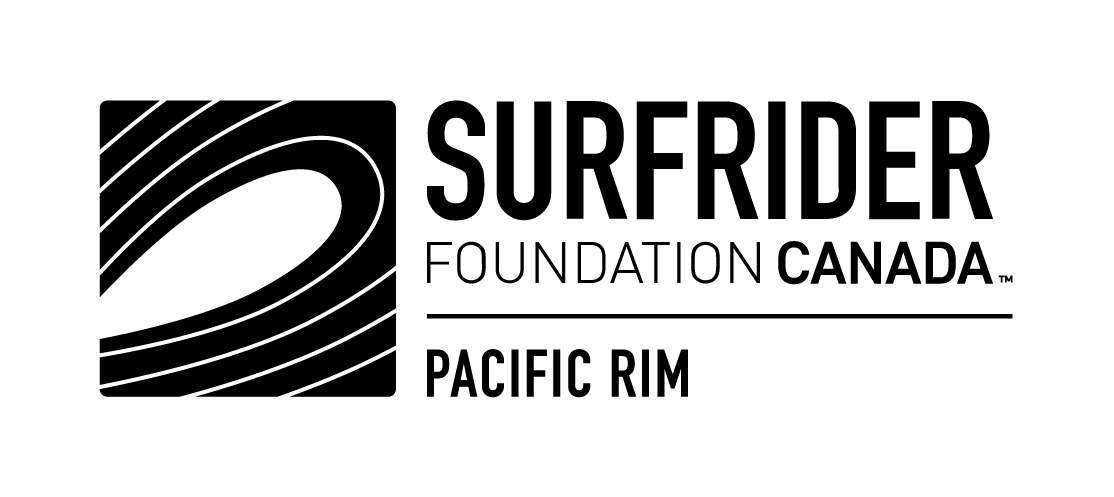Canada’s Single Use Plastic Ban Takes A Small Step in the Right Direction
Beg Islands Remote Clean-Up 2022, Photo by: Sophie Peters
Whether you’re working or playing on Tofino’s beautiful shorelines, piles of trash are the last thing anyone wants to see. Single-use plastics disrupt our interaction with and enjoyment of nature and are harmful to ocean creatures such as fish, birds and turtles. They also have a negative impact on human health through their presence in the food chain in the form of microplastics.
Through the efforts of the grassroots organization Surfrider Pacific Rim and coastal activists in the community, Tofino and Ucluelet, BC, were the first to act on regulations against many of these harmful single-use products– including plastic bags, straws, polystyrene containers and cutlery. After years of campaigning and growing public awareness around the harmful consequences of single-use plastics, the Government of Canada has come through on long-awaited promises to ban selective single-use plastics. This list includes checkout bags, cutlery, food service ware such as takeout containers, ring carriers, stir sticks, and straws.
Straws will still be available upon request. This exception was made to accommodate individuals who use straws for health reasons, such as sensory or motor issues. The banning of straws has been a point of contention for disability activists, who say that straws are a necessity for some people and that an outright ban puts the burden on disabled people to overcome yet another barrier to accessing public spaces.
The import and manufacturing of these items was officially banned on December 20th, 2022. To give businesses time to adapt to these changes, sales will be prohibited starting December 2023. In a move that stands alone among peer jurisdictions internationally, Canada will also ban exports starting in 2025.
This approach marks an effort to transition Canada from a linear economy to a circular economy. A circular economy is a system of resource use which eliminates or minimizes waste; instead, products and materials are kept in the economy by continuous recycling, reuse, or refurbishment. This is reflected in other local works of the Pacific Rim Chapter, including a recent project to bring Styro-Surfboards to the community in partnership with Rugged Coast Research Society and Blue Friday (a yearly alternative to Black Friday that supports ocean conservation initiatives).
In Canada, up to 15 billion plastic checkout bags are used annually, and approximately 16 million straws are used daily. Justin Trudeau stated on Twitter that the move will eliminate 1.3 million tonnes of plastic waste and 22,000 tonnes of plastic pollution, which is roughly equivalent to a million garbage bags of litter.
A transition towards a circular economy would also provide employment opportunities for new product designers and entrepreneurs. Steven Guilbeault, the Minister of Environment and Climate Change said in a statement that moving towards a circular plastics economy could generate billions in revenue and create 42,000 jobs by 2030.
While the ban has been met with positive feedback, many environmental activists insist it should be seen as the first step in a long journey, rather than a solution in and of itself. Sarah King, Greenpeace Canada’s Head of Oceans & Plastics Campaign, notes in a response published by Greenpeace that Canada is projected to double its 2019 plastic use by 2060–and the ban only covers 5% of Canada’s 2019 plastic waste production.
Canada’s Environmental Agency said in a statement that single-use plastics make up most of the plastic litter found across Canada’s shorelines. However, this assertion is contested by some. As highlighted by Surfrider Canada, single-use plastics are “the tip of the iceberg” when it comes to plastic production. An analysis of more complete datasets of marine debris, which include more remote shorelines, points to fishing and aquaculture industries as primary culprits for plastic pollution. This suggests that policies targeting waste produced by these industries could significantly reduce plastic pollution.
Further, Surfrider Canada acknowledges that a blanket ban may not be as effective as incentivizing and educating businesses on alternatives to get them fully on board. Surfrider Pacific Rim’s Ocean Friendly Business (OFB) campaign works to do just that by registering 8-10 new businesses in Tofino and Ucluelet every year as Ocean Friendly by encouraging them to eliminate unnecessary plastics, divert waste from landfills, and adopt regenerative practices. For local businesses interested in becoming an OFB in 2023, Surfrider Pacific Rim encourages you to reach out to their Chapter Coordinator.
While these steps forward are a cause to celebrate, Canada still has a long way to go. The items the government has included in its ban are only a drop in the bucket. Further prohibitions on other harmful single-use plastics, such as hot and cold drink cups, all forms of polystyrene, cigarette filters, and another plastic packaging must be considered if we are to significantly curb our waste production. While this ban is a great stepping stone, it’s up to all of us to keep pushing forward for the sake of our health, our communities, and our planet.
Sources:
Government of British Columbia. 04/2022. CleanBC Single-Use Plastics Intention Paper.
Root, Tik. Washington Post. 03/2022. UN Adopts Historic Resolution Aimed at Ending Plastic Pollution
Sierra Club. 06/22. Media Statement: Single Use Plastics Regulations Welcomed but Faster Action Needed
Wei, Brandon. Greenpeace. 06/22. Reaction to Federal Single-Use Plastic Ban Regulations.
Danovich, Tove & Godoy, Maria. NPR. 07/22. Why People With Disabilities Want Bans On Plastic Straws To Be More Flexible.

